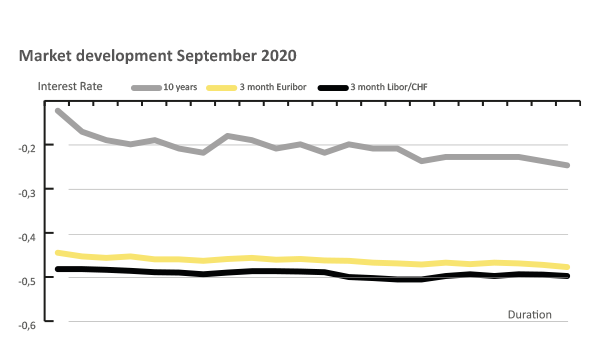Loading content …
14 October 2020
Corona Requires too Much Attention
Even as the coronavirus crisis remains the most dominant subject in the media, the real estate industry is undergoing significant changes. The pending re-enactment of the Federal Building Code (BauGB) could be completed before the end of the current parliamentary term. In the long term, European ESG guidance could have far greater ramifications for the industry than COVID-19.
With summer moving into fall, the coronavirus crisis has tightened its grip on the world again. As feared, the number of infections is on the rise everywhere, and the debate on countermeasures and possible economic ramifications is intensifying accordingly. Even now, it is becoming obvious that the measures intervening with the private sphere are being stepped up whereas those for business are less invasive than they were during the first lockdown. Now, as then, schools remain a major risk for the economy. There are schools under quarantine everywhere in Germany even at this time. Accordingly, their parents are subject to constraints in terms of their gainful employment. Worse yet, the numbers are expected to increase significantly, a development that would not remain without consequences for the anyway hard-hit economy.
The ramifications and consequences for the real estate business are also discussed on a daily basis. Here, the primary problem child is currently the office sector. In addition to regressive demand that is to be expected in the wake of the sluggish business cycle, the long-term effects of the trend to work from home is subject to much speculation.
Against this background, it is all the more regrettable that the re-enactment of the Federal Building Code (BauGB) has stalled, because the real estate industry had hoped it would bring positive stimuli along with other changes. From the industry’s point of view, the process had initially promised some welcome developments: For one thing, the latest draft bill for the new building code lacked the far-reaching ban on conversions of rental apartment buildings into condominiums that had been included in the original draft. The option to require owners to develop their plots, another provision originally included, was also dropped. But these adjustments have put the entire re-enactment of the law in jeopardy because the Social Democrats are unwilling to consent to the revised draft bill.
From our point of view, it would be premature to assume that the condominium conversion ban and the obligation to build has been shelved for good. However, the final word in this matter has yet to be spoken.

Outlook
In a parallel development, comprehensive changes are facing the real estate industry from the “green corner.” These are driven by the European Union, which is in the process of preparing or passing a bundle of measures designed to restructure the financial system to increase sustainability. The long-term effects of it will be far more significant than the COVID-19 pandemic. The European legislature has defined comprehensive requirements in regard to sustainability (ESG). At the moment, ESG is primarily a labour-intensive issue for regulated investors, especially for property funds, insurance companies and superannuation schemes – and, of course, for any property developer planning to sell to investors of this type. For all other representatives of the real estate industry, the further tightening of existing rules and regulations on energy efficiency and CO2 reductions remains more important. Here, the allowances for climate protection measures are to be expanded, on the one hand, while the requirements are to be tightened, on the other hand, especially for standing properties. Trying to stay on top of all the diverse options and obligations on the various level of government will keep you busy full time. In short: While the coronavirus issue commands the entire attention of the media, the subject of ESG is undergoing changes that simply cannot be overrated in regard to their ramifications.
Disclaimer:
The article reflect the opinion of the authors. Nevertheless, the provider and authors assume no liability for the accuracy, completeness and timeliness of the information provided. In particular, the information is of a general nature and does not constitute legally binding advice.
Herausgeber

Francesco Fedele Prof Steffen Sebastian
Prof Steffen Sebastian
Holder of the Chair of Real Estate Finance
at IREBS, University Regensburg
Francesco Fedele
CEO, BF.direkt AG

